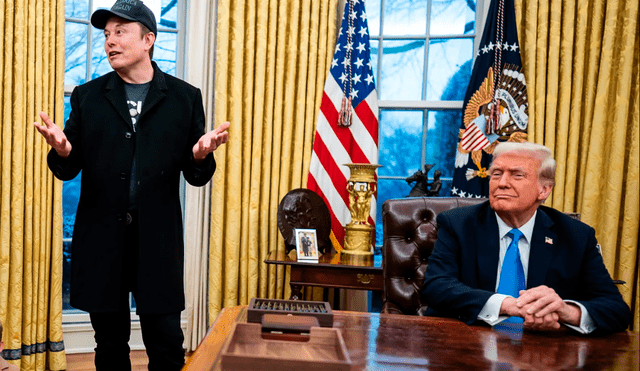DOGE checks for families: could they be coming soon? Details on eligibility and possible distribution
The idea of a $5,000 DOGE dividend check proposed by Trump and Musk has sparked excitement, but economists remain skeptical about its feasibility and potential impact on inflation.

In recent months, the idea of a Department of Government Efficiency (DOGE) equity earnings has gained attention, especially after being endorsed by both President Donald Trump and entrepreneur Elon Musk. The proposal suggests using savings from government spending cuts to issue $5,000 checks to taxpaying households. This plan has started interest, especially considering how much relief the previous stimulus drafts provided during the pandemic. With inflation on the growth and the cost of living rising, many are curious if such a measure could help ease the financial burden many are currently facing.
However, the feasibility of the DOGE dividend check remains uncertain. While proponents argue that it could offer monetary relief to millions of families, economists are skeptical about its practicality. Some experts question whether the deposits from state spending trims can actually reach the $2 trillion target needed to fund such payments. Others warn that distributing more vouchers must fuel cost escalation, especially if it leads to surged demand without corresponding supply.

ALSO SEE: International Women’s Day 2025 theme and significance explained with its global celebrations
Could Trump and Musk's DOGE plan really provide $5,000 payments?
The idea of using reductions in public spending to distribute $5,000 remittances to eligible families has been promoted by Donald Trump and Elon Musk through the Department of Government Efficiency (DOGE). While the concept is appealing, experts question whether it can truly be accomplished, as significant reductions in federal expenditures have proven difficult in the past. Although the tactic aims to return some of the nation's budget back to individuals, it persists unclear how much can realistically be redirected without major legislative changes.
Supporters of the plan argue that if Musk's target of trimming $2 trillion from state dues is reached, a portion of that could be handed out to eligible households. Despite the enthusiasm surrounding the idea, many economists are doubtful, pointing out the obstacles in achieving such massive drop-offs in outlays.
Would another round of government payments fuel inflation?
President Trump and his advisors have blamed Biden’s $1,400 stimulus checks for contributing to the highest expansion in four decades. Trump maintains that new compensations, sourced from reduced federal spending, wouldn’t have the same effect. “Since the money would have been spent by the government anyway, having it spent by consumers would be a wash,” said Kevin Hassett, director of the White House’s National Economic Council.
However, policy advisors like Ernie Tedeschi, from the Biden administration, argue that more payouts could worsen the economy by increasing demand when businesses are already battling with worker shortages. Elaine Kamarck from the Brookings Institution also expressed skepticism, calling the DOGE dividend “ridiculous” and questioning its potential impact.











